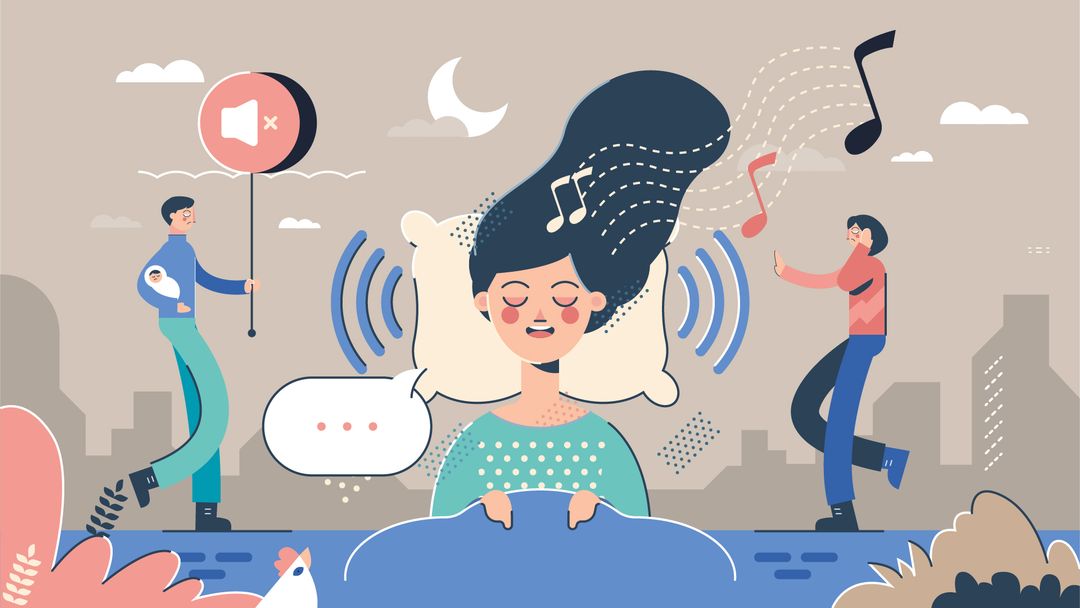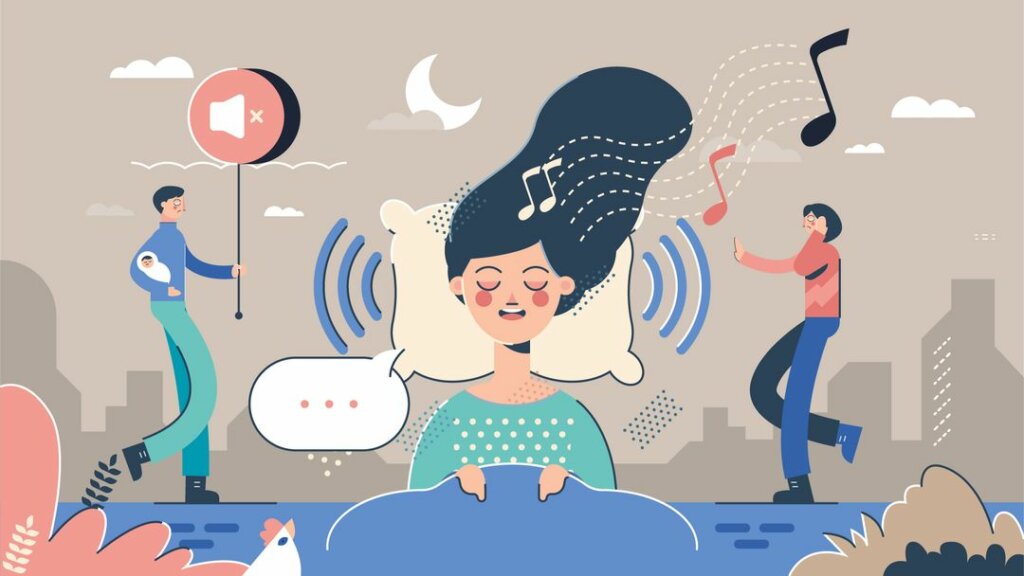Hearing someone talk in their sleep can be interesting, revelatory, and sometimes even funny. The sleep talker can end up revealing secrets or having imagined, entertaining conversations with themselves.
We usually shrug these off as funny incidents, but in extreme cases, sleep talking can also be terrifying and chronically sleep-disruptive, especially if it involves shouting, swearing, and screaming.
Sleep talking or somniloquy is a parasomnia sleep disorder which involves a person talking while asleep. While it’s a very common occurrence in both kids and adults, chronic sleep talking is still rare and could indicate an underlying medical condition. So why does it happen, when should you seek help, and what can you do to manage it?
Can’t sleep and don’t know why? Check out our Complete Guide to Sleep Disorders with symptoms, causes, and treatments on over twenty types of sleep disorders.
Quick Facts – Sleep Talking or Somniloquy
Frequency: Up to 68% of adults* have talked at least once in their sleep
Risk Factors: Early childhood age, family history, other sleep disorders, depression
Nature: Physical and mental
Treatment: Stress reduction, lifestyle adjustments, sleep hygiene improvement
Symptoms – Sleep Talking or Somniloquy
Sleep talking or somniloquy varies in duration and severity. The disorder can be acute, subacute, or chronic, and its severity can be mild, moderate, or severe—depending on the frequency of episodes and the level of sleep disturbance to the bed partner.
Sleep talking can occur on its own, or it can be accompanied by symptoms associated with other sleep disorders, such as night terrors or sleepwalking. That said, here are the most commonly exhibited behaviors and symptoms of sleep talking based on studies.
- Talking or mumbling
- Shouting, swearing
- Carrying out entire conversations, or giving speeches, during sleep
- Completely unaffected daytime functioning
- No recollection of sleep talking or any of the things said while asleep
Causes – Sleep Talking or Somniloquy
According to the Sleep Research Society, sleep talking is poorly studied because it doesn’t pose serious health risks and it is not often reported. This might be why there are still no known causes for it.
Still, certain conditions and behavioral patterns have been linked to the occurrence of sleep talking. Here are some of the factors that contribute to the incidence of sleep talking among adults.
- Depression, post-traumatic stress disorder (PTSD)
- Other sleep disorders such as sleep apnea, confusional arousals, night terrors, or rapid eye movement sleep behavior disorder (RBD)
- Sleep deprivation
- Stress
- Alcohol consumption
- Family history – According to the National Sleep Foundation research, many cases of sleep talking seem to run across generations in families.
Treatment – Sleep Talking or Somniloquy
Sleep talking generally doesn’t require treatment because as mentioned, it poses very little consequence to someone’s health and well-being. In cases where the sleep talking gets very loud and leads to sleep disruption for the patient and/or their bed partner, the below recommendations have proven effective to help manage the symptoms.
- Observing proper sleep hygiene – This means following a regular sleep schedule, maintaining a healthy amount of sleep each night, avoiding caffeine past 4:00 P.M., refraining from heavy meals late in the evening or close to bedtime, etc.
- Relaxation and stress reduction techniques – These can include meditation, yoga, deep breathing exercises, going out for nature walks, etc.
- Lifestyle adjustments – Sleep talkers are recommended to go easy on the wine and beer because alcohol use has been found to contribute to increased likelihood of sleep talking.
How You Will Overcome Sleep Talking or Somniloquy
Thankfully, having sleep talking episodes is no cause for worry or for serious medical treatment on its own. It’s only when its severity leads to sleep deprivation, or when it is accompanied by potentially dangerous sleep activities (e.g. sleepwalking), that you need to see a doctor about it.
If your partner talks in their sleep, you can help make sure they have a regular sleep schedule and that they take it easy on caffeine and alcohol, and to take a raincheck on the buffet or super size dinner, especially when it is close to bedtime.
The National Sleep Foundation also suggests wearing earplugs or having white noise in the background to help you sleep soundly if your partner is a sleep talker. An even better idea is to do relaxing activities with your loved one before bedtime—do some light yoga and try simple breathing exercises.
Not only will these simple lifestyle and sleep behavior changes allow you to manage you or your partner’s sleep talking symptoms; they will also help you both relax as you snooze your way—in complete and unperturbed quiet—to dreamland.
Did you know?
This article is part of our Complete Guide to Sleep Disorders – A resource that will help you get your quality sleep back. Click here to learn more about sleep disorders, their causes, symptoms and how to overcome them.



